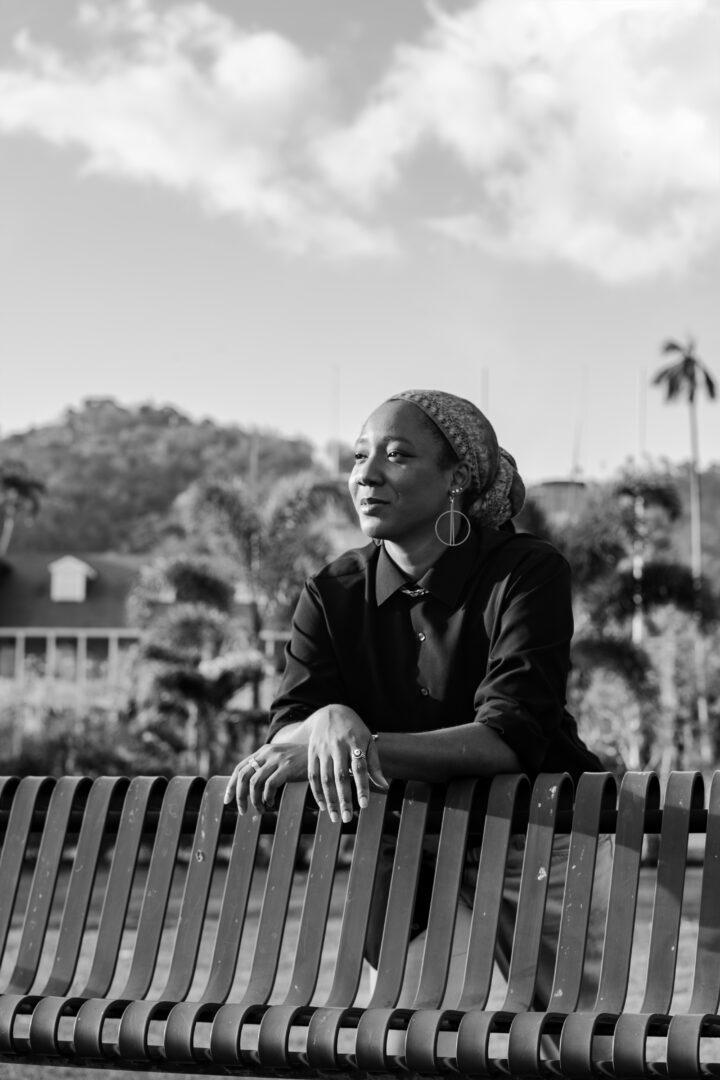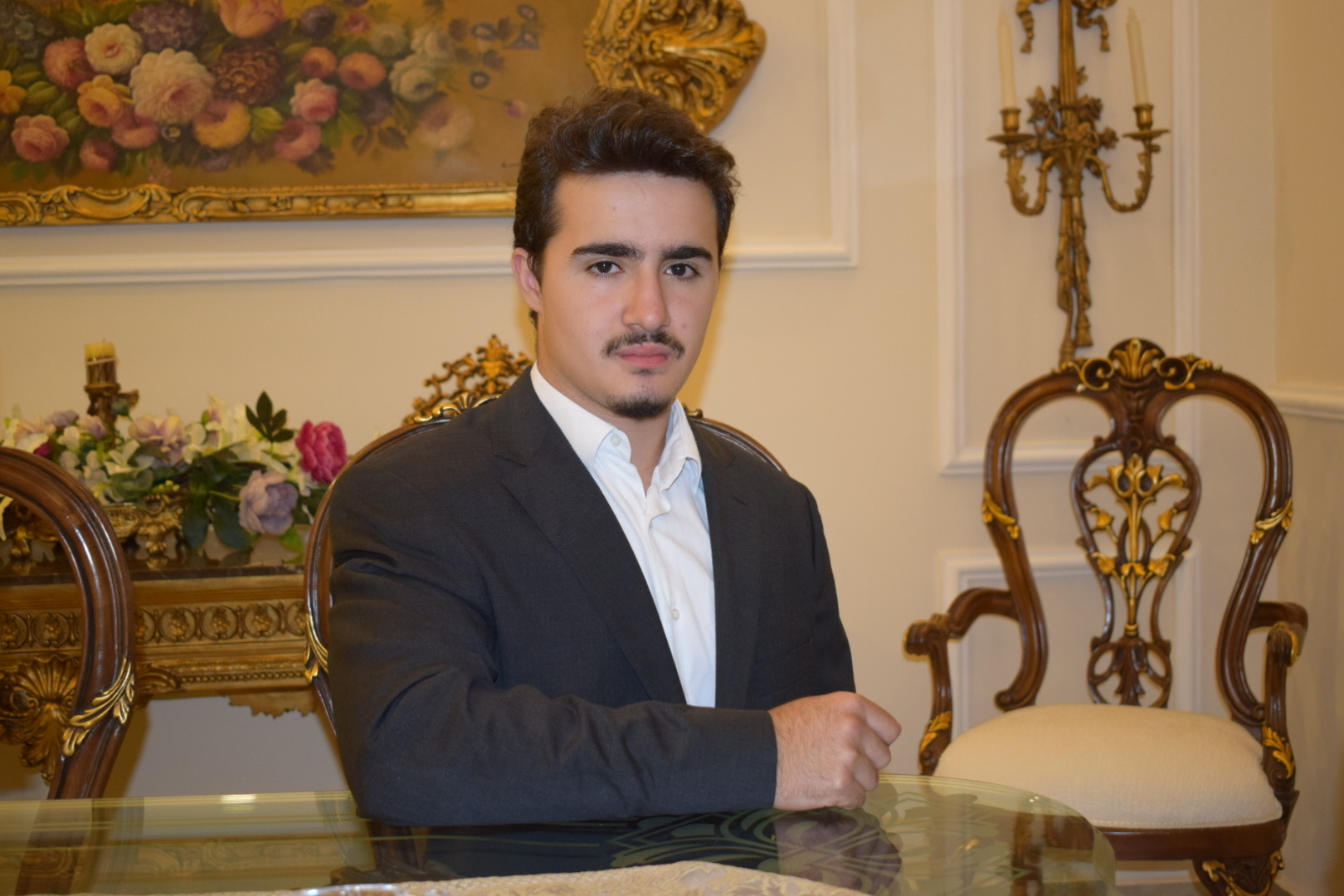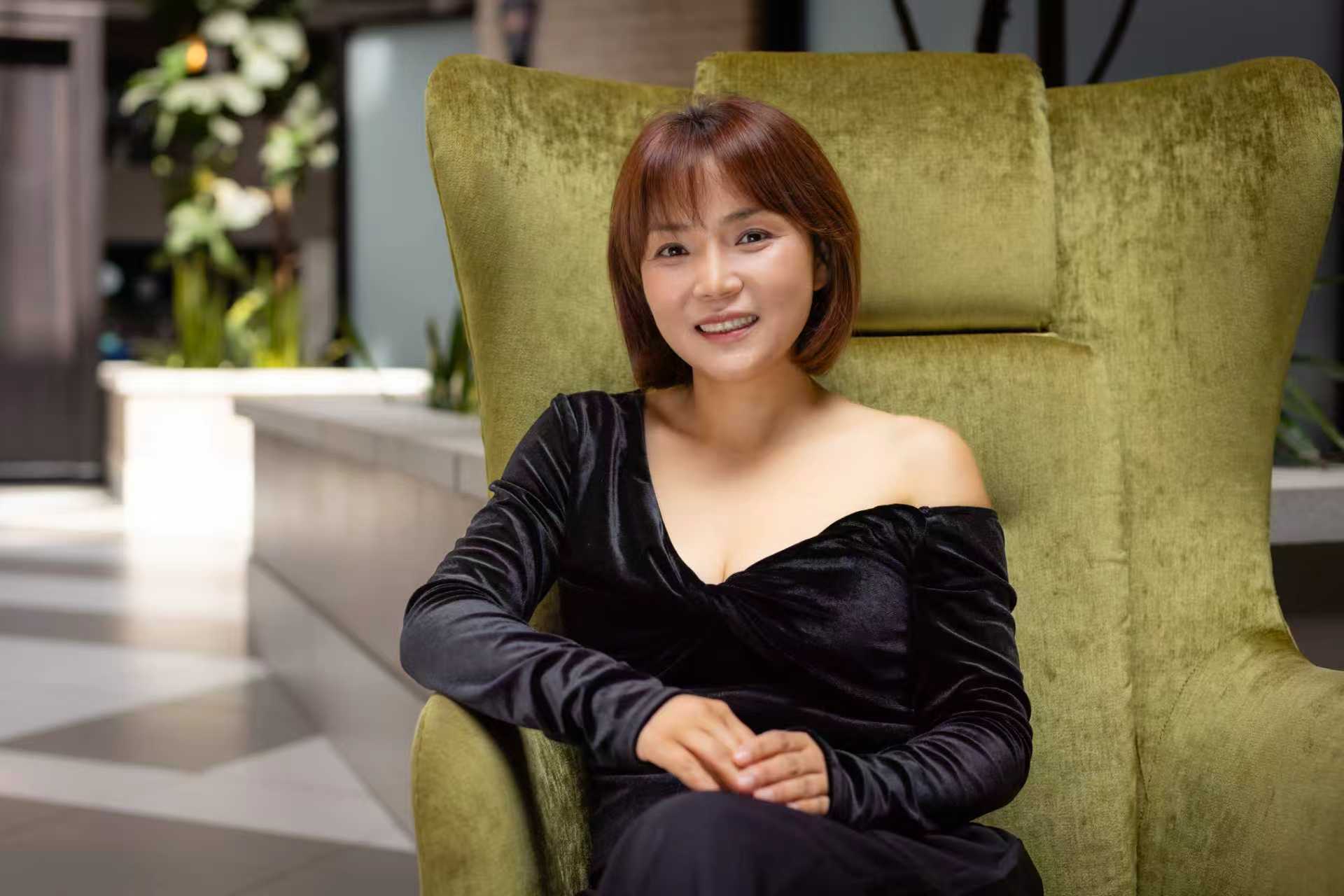Alright – so today we’ve got the honor of introducing you to Tene Francis-Phillip. We think you’ll enjoy our conversation, we’ve shared it below.
Tene, thank you so much for joining us today. Let’s jump right into something we’re really interested in hearing about from you – being the only one in the room. So many of us find ourselves as the only woman in the room, the only immigrant or the only artist in the room, etc. Can you talk to us about how you have learned to be effective and successful in situations where you are the only one in the room like you?
I was twelve the first time I realized I was different.
I went to an all-girls boarding school in small, very white, suburb in Reading, England. Three hundred students. Just 3 of us were Black.
I grew up in the Caribbean where *I* was the majority, and white people were the minority. So walking into that school was the moment I learned that my skin meant something to other people that it had never meant to me.
And I learned fast that I would be underestimated.
At first, my teachers, quite patronizingly, told me that it was okay if it took me a while to catch up with my peers. Then my assessment scores came back and suddenly I’m a “prized student.” Sports coaches are recruiting me for their teams… Subject teachers are competing for me to choose their classes as if I were some sort of rare Pokemon. Gotta catch ’em all! *laughter*
But here’s what they didn’t do: listen to me when I tried to contribute perspectives from the Caribbean, especially when those perspectives challenged their view of Britain as a pioneer of the “New World” rather than a colonial power. Yeah, they weren’t very interested in that part.
Fast forward to now. I’m a professional life and mindfulness coach, and I’m *still* the only one in the room. The coaching and wellness space is overwhelmingly white and Global North. Even in “diverse” rooms, I’m usually the only Caribbean person, the only person from the Global South, the only person from a small-island developing state.
Which means much of the content in this space doesn’t apply to me. I can’t tell you how many times I’ve had to say that it’s not as simple as making a PayPal link or opening a Stripe account – because PayPal doesn’t pay out to bank accounts in many countries, and Stripe still isn’t available in many places in this region.
Caribbean entrepreneurs are systematically left out of the digital business conversation—something I discussed with my colleague Cassia Marina on the Tea Time podcast.
So I learned if I don’t advocate for myself, nobody will.
I’m the one who puts my hand up. I ask the awkward question, the *uncomfortable* question, the question everyone’s thinking about but nobody wants to say. I write the reviews. I submit the feedback.
Because when you’re the only one in the room, you realize nobody else has your background, your context, or your lived experience. And people can’t learn unless you speak up.
I also learned being the only one in the room makes you valuable. I’ve learned to look for green flags and red flags. Is this a company that genuinely wants to learn from different perspectives, or am I just here for optics?
I learned that my voice matters. That my perspective is valuable. That speaking up, even when it’s uncomfortable, creates space. Not just for me, but for everyone who comes after me.
That twelve-year-old girl in Reading learned to fight for her seat at the table. Now I build tables of my own.
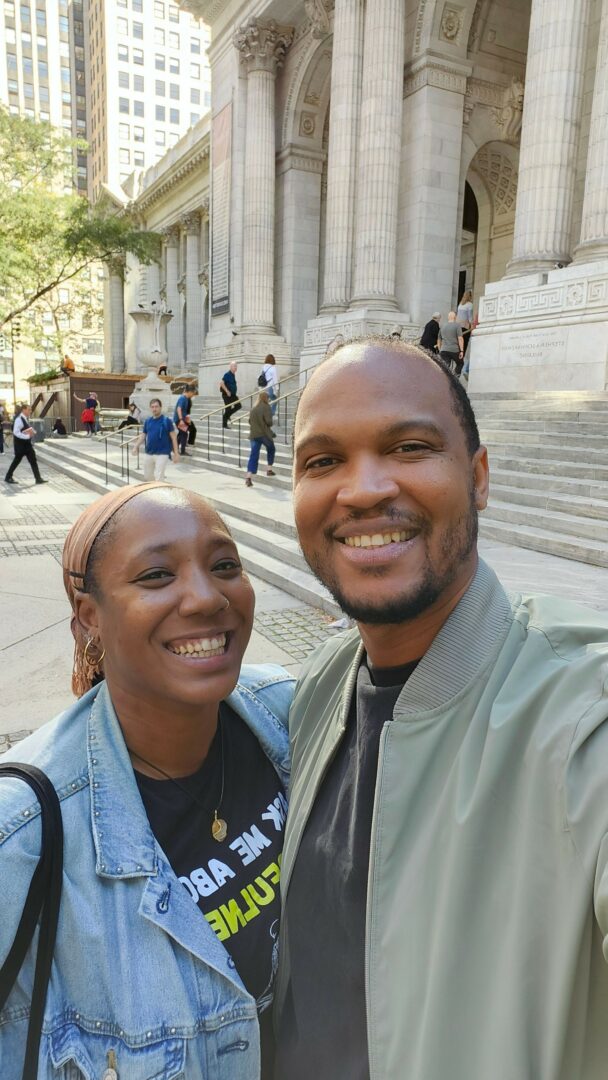
Thanks for sharing that. So, before we get any further into our conversation, can you tell our readers a bit about yourself and what you’re working on?
What I do comes down to one thing: I create spaces where people can stop pretending.
Most people spend their entire lives performing. At work, at home, even in therapy. They’re managing perceptions, saying the right things, showing the acceptable version of themselves. And they’re exhausted.
I learned early that when you’re the only one in the room, you have to speak up because no one else will. But I also learned that most people have never actually been heard. Not really. Not the messy, unfiltered truth of who they are.
That’s what I do. I listen without flinching.
My clients tell me they say things to me they’ve never said out loud, sometimes not even to themselves. I think it’s because I’m not afraid of the messy, the raw, the uncomfortable. I’ll name the thing everyone’s dancing around. I’ll ask the question no one else will. I’ll go toe to toe with them without batting an eye at their intensity. And they love that about me.
I work with high achievers who look successful on paper but feel hollow. A lot of them are men… professional, executive, entrepreneurial men who are crushing it externally but their lives are a hot mess behind the scenes.
Here’s the thing about working with men: most spaces require them to perform even when they’re trying to be vulnerable. I had one client tell me that men are only allowed to show a certain level of intensity, after that they’re either considered weak or dangerous. With me, they don’t have to do any of that. I used to work with convicted felons so very little shocks me. That creates a different kind of trust.
And when people actually show up and do the work? Things move fast. I had one client leave his soul-draining UN job, relocate to the UK, launch his dream video production company, get married, relocate again to another country, and become a father, all within two years. This is normal for my clients. When people work with me, everything accelerates.
Right now, I’m launching Peace in Practice, a monthly mindfulness membership, in November for Men’s Mental Health Month. With the chaos in the world right now, people don’t need more theory. They need tools they can actually use when they’re spiraling at 2 AM or sitting in back-to-back meetings when they barely got 3 hours of sleep the night before.
I’m also opening applications for a limited number of men for high-touch 1:1 coaching starting Q1 2026. Not for people who want to dip their toes in. For men who are ready for their personal lives to be as successful as their work.
And I have one more thing I’m working on—something big—but I’m not ready to talk about it yet. Let’s just say it’s going to shake some things up for men and the coaching space in a big way.
The tl;dr is I’m the person you come to when you’re done pretending everything’s fine and you’re ready to figure out what you actually want. Not what you’re supposed to want. What you want.
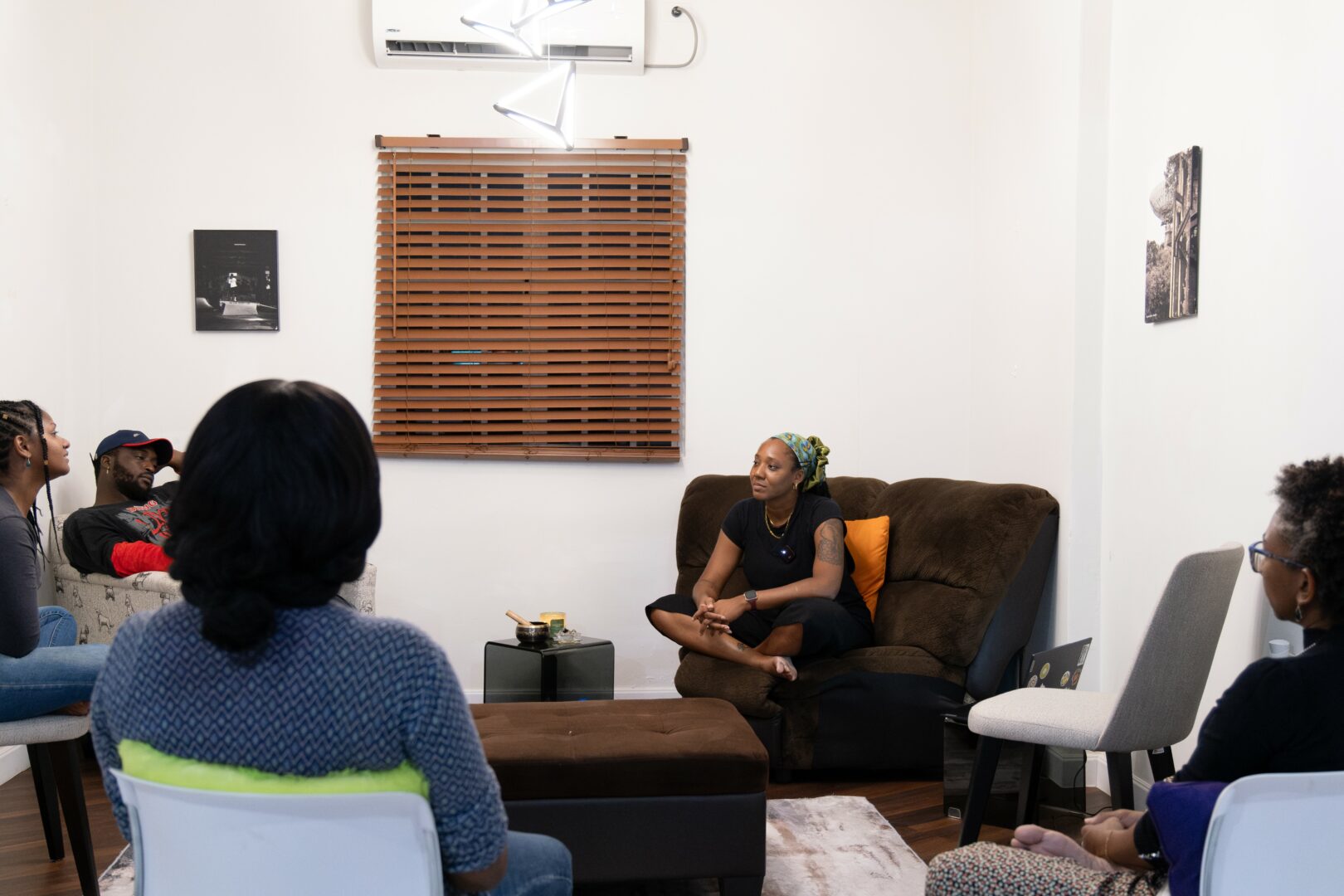
There is so much advice out there about all the different skills and qualities folks need to develop in order to succeed in today’s highly competitive environment and often it can feel overwhelming. So, if we had to break it down to just the three that matter most, which three skills or qualities would you focus on?
Three things have been absolutely critical for me: discernment, courage, and mindfulness.
The first one, discernment, is knowing the difference between an opportunity and a trap. I’ve been the diversity hire. I’ve been in partnerships where I was invited to “add perspective” but not actually listened to. I’ve joined programs that looked perfect on paper but were just glorified pyramid schemes.
I had to learn to ask better questions before I said yes. “Who else is in this room?” “Has anyone from the Caribbean done this successfully?” “What happens if this doesn’t work for me?” A lot of people don’t ask these questions because they don’t want to seem difficult. I ask them because I don’t like wasting my time.
If you’re early in your journey, stop being so grateful for every opportunity that comes your way. Not everything that glitters is gold. Some of it is just shiny garbage.
The second thing is courage. Courage for me is the ability to feel the fear and do the thing anyway. I’m a woman who coaches men so I’m already fighting an uphill battle. Plus I work with men in a field dominated by white women who coach other white women. So, I talk about things most coaches won’t touch. I have opinions that make people uncomfortable.
And people have things to say about it. They question my credentials, my experience, my right to do what I do. But here’s what I learned: the people criticizing you are usually the ones not doing anything themselves. So I stopped listening.
If you’re waiting for permission or validation to do your thing, you’re going to be waiting forever. Nobody’s coming to tell you you’re ready. You just have to decide that you are.
Mindfulness is the third one. Obviously, haha. Mindfulness for me isn’t about being calm, though I’m told often that I am. It’s about catching yourself before you make decisions from panic or fear. It’s noticing when you’re about to say yes to something because you think you should, not because you want to. It’s being able to sit with discomfort instead of immediately trying to fix it or run from it.
It’s probably the skill that’s saved me the most money and the most time. Because when you can pause and actually think instead of just reacting, you make better decisions.
Start with noticing. That’s it. Notice when you’re stressed. Notice when you’re making decisions from anxiety or pressure. You don’t have to change anything right away. Just notice. You’ll probably realise your body is trying to tell you something that if you didn’t take the time to tune in, you’d have missed altogether.
And these three things work together, right?
You can’t have real courage without discernment—you’ll just be brave in the wrong direction.
You can’t develop discernment without mindfulness—you’ll be too busy reacting to actually think.
And you can’t be mindful without courage—because sitting with yourself and your truth? That’s the most courageous thing you can do.
But when you have all three? That’s when you stop waiting for permission and start building what you actually want.
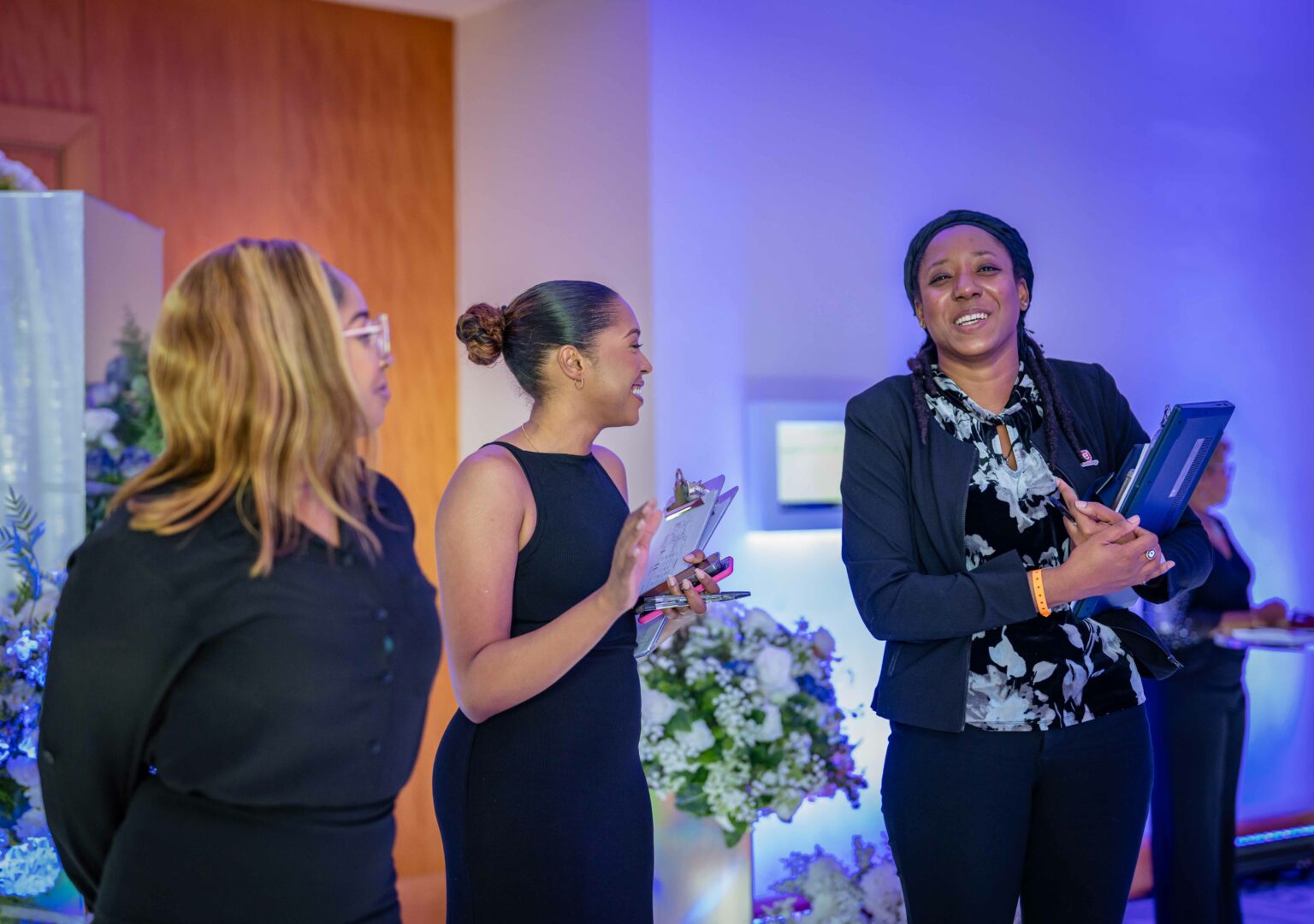
Any advice for folks feeling overwhelmed?
Well, as a Mindfulness Coach I have many. *laughter*
But honestly? I still get overwhelmed. Less than I used to, probably 80% less since I started practicing mindfulness, but it still happens.
For me, overwhelm usually shows up as thought spirals. My brain goes into this loop of “what if this happens, and what if it doesn’t work, and maybe you should try that thing, and and and—” you know the drill.
When that happens, I do box breathing. It’s ridiculously simple but it works. You breathe in for 4, hold for 4, breathe out for 4, hold for 4. In your mind, you’re tracing the outline of a square.
The reason it works isn’t just the breathing, it’s because you’re giving your brain something else to focus on. When you’re counting and visualizing, you literally can’t think about all the what ifs. Your brain can only do one thing at a time.
The other thing I do, especially in the morning, is mindful gazing. I’m lucky-I have this beautiful view from my apartment, But honestly, you can do this anywhere. A window, a balcony, even sitting on your front step. I’ll just stand there and let my gaze wander. Sky, birds, buildings, cars, whatever catches my attention. Then I’ll pick a color and try to spot it in different places.
The act of looking around signals safety to your nervous system and pulls you out of your head and into what’s actually happening right now. Sometimes I’ll even yawn while I’m doing it, which is a signal that your body knows it’s safe.
But here’s the thing, I don’t always do the “perfect” mindfulness practice when I’m overwhelmed. Sometimes I just need to step away. Close my laptop. Go for a walk or send a 10-minute voice note vent to a friend.
And if all else fails? I take a nap. I am yet to meet a problem a good nap couldn’t solve.
Contact Info:
- Website: https://www.coachtene.com
- Linkedin: https://linkedin.com/in/coachtene
- Other: Tiktok: https://tiktok.com/@coachtene
Substack: https://coachtene.substack.com
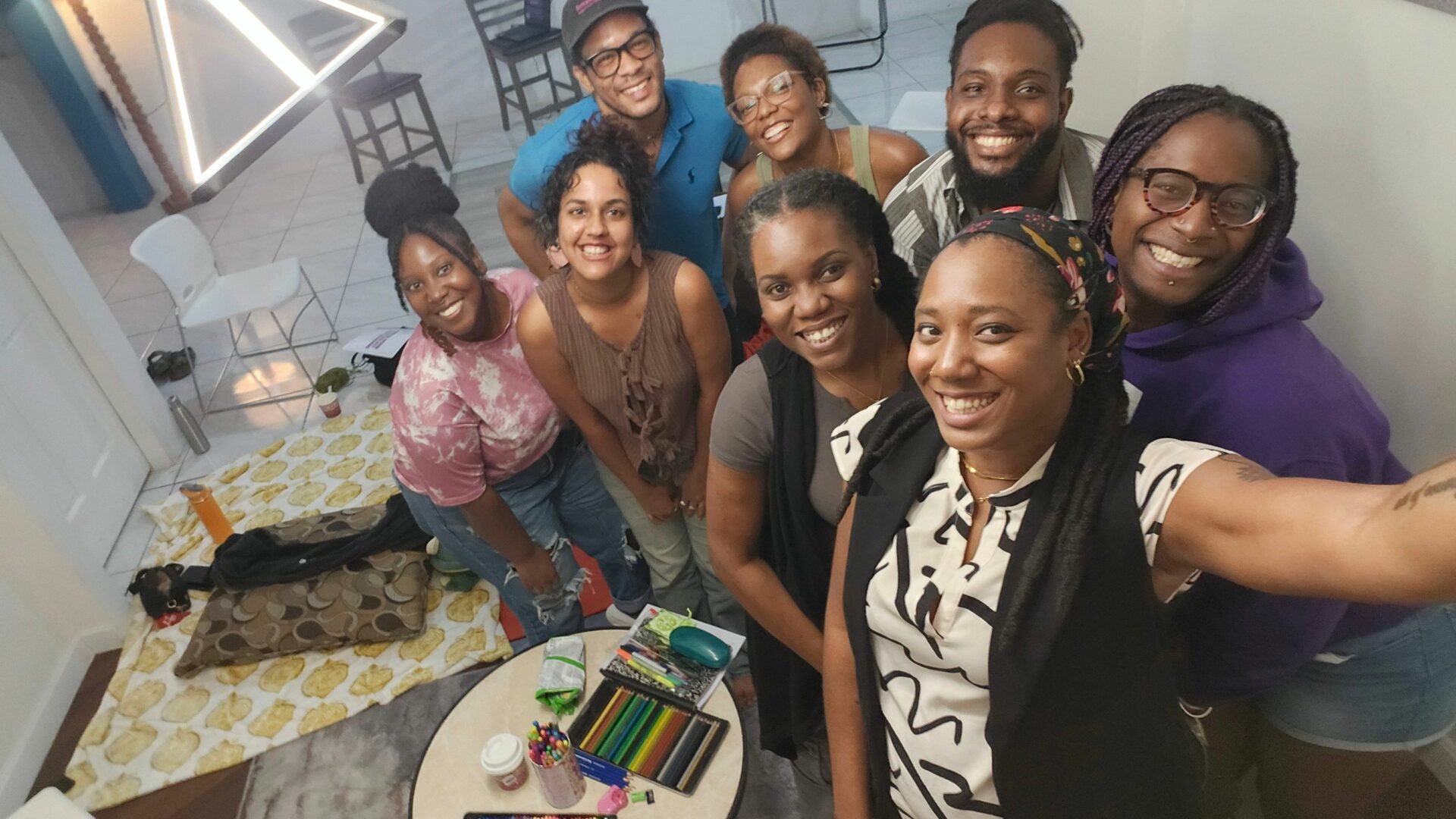
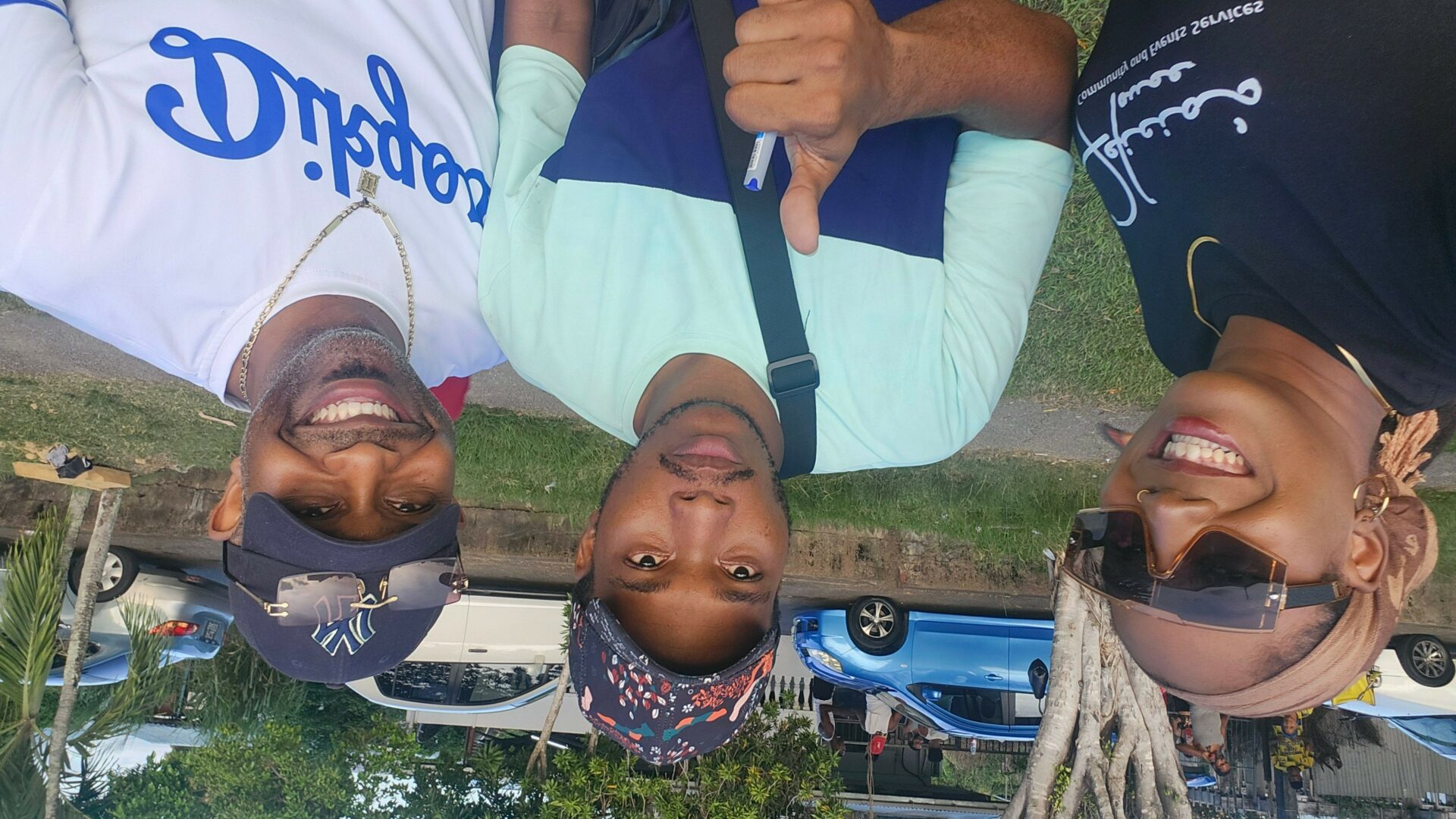
Image Credits
Jordon Briggs
so if you or someone you know deserves recognition please let us know here.

